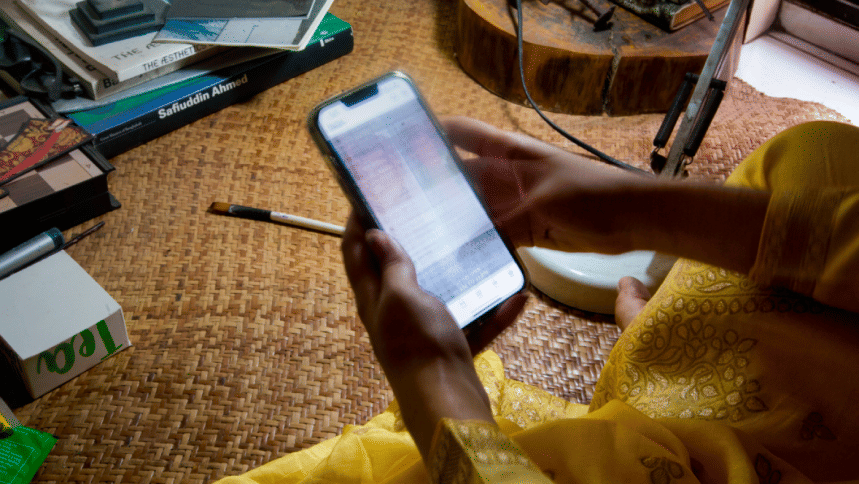Doomscrolling and anxiety: Two sides of the same coin

Picture this. Someone picks up their phone for the last scroll on Facebook before falling asleep. What was meant to be a five-minute scroll turns into hours and before they realise it, the clock strikes four in the morning. Not only have they wasted their time, they missed out on sleep, leaving them drained for the next day.
Unfortunately, this person is me and the ordeal I went through is called doomscrolling.
Although the term "doomscrolling" seems unfamiliar, it originated in 2018 on Twitter. In 2020, it was named Oxford Dictionary's most trendy word for the year. While Covid-19 spread outside our homes, phones gave us doomscrolling inside our very rooms.
But, what is doomscrolling?
Human brains are hardwired to enjoy consuming information. It makes us feel safer and informed, giving us the feeling that we are always in control. Subconsciously wanting more of it, it tells us to continue facilitating news and information to the brain, necessary or not. This is exactly what happened during the pandemic. People felt that scrolling social media was keeping them updated. But the problems began to sprout when people could not stop, and continued scrolling until they eventually became addicted.
Studies have found that people struggling with anxiety-related disorders (panic disorder, obsessive compulsive disorder, post traumatic stress disorder, generalised anxiety disorder, and social anxiety disorder) are more susceptible to doomscrolling. What happens is that your desperation to consume more information and your anxiety become one. Ultimately, your anxiety and social media feed off of each other, making you the victim. It gets you obsessed, intensifying fear and anxiety even more, further aggravating mental disorders. As you scroll more to escape this problem, it triggers fatigue, further exacerbating your existing mental health issues and turning this into a vicious cycle.
Eventually, doomscrolling can become so addictive that even if you are faced with a minor hurdle on your day or have a deadline in 30 minutes, your anxiety does not let you do your job. It leads you to open your phone and start scrolling, almost like second nature. The worst part is that social media algorithms adapt with that and show you content recognising your scrolling behaviour.
Like other phenomena, the solution to the problem is inside its very definition. Our "awareness" of our habit is the first step to quitting it. If you are self-aware and are able to recognise this behaviour, a positive intent may be one of the most helpful ways to snap out of it. Simple tasks such as limiting social media consumption or even seeking positivity through reading books, going on walks, and spending time with family go a long way. Ultimately, newer habits, such as not picking up that phone before you go to sleep, journaling, or even watching a TV show may help. If things get too difficult, seeking out professional help is always an option, and often a good one.
Eahsan is unsure if his experiences generated his personality or is it the other way around. Send him help at [email protected]

 For all latest news, follow The Daily Star's Google News channel.
For all latest news, follow The Daily Star's Google News channel. 



Comments